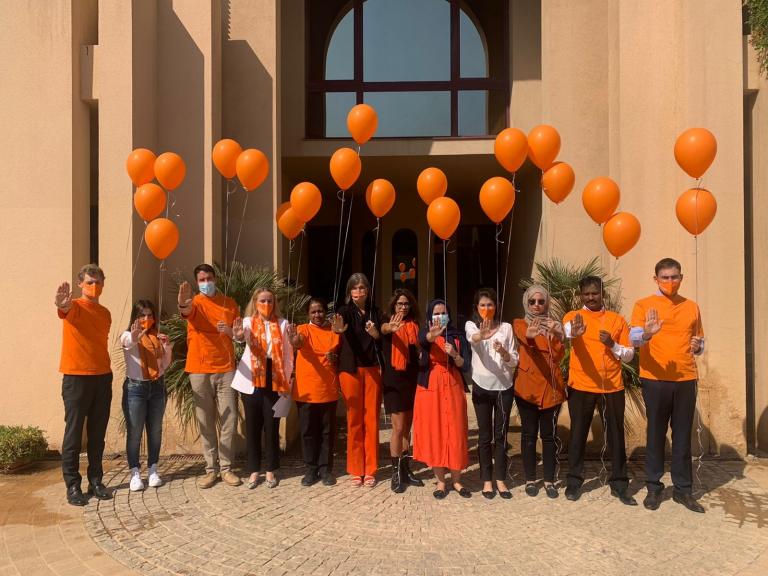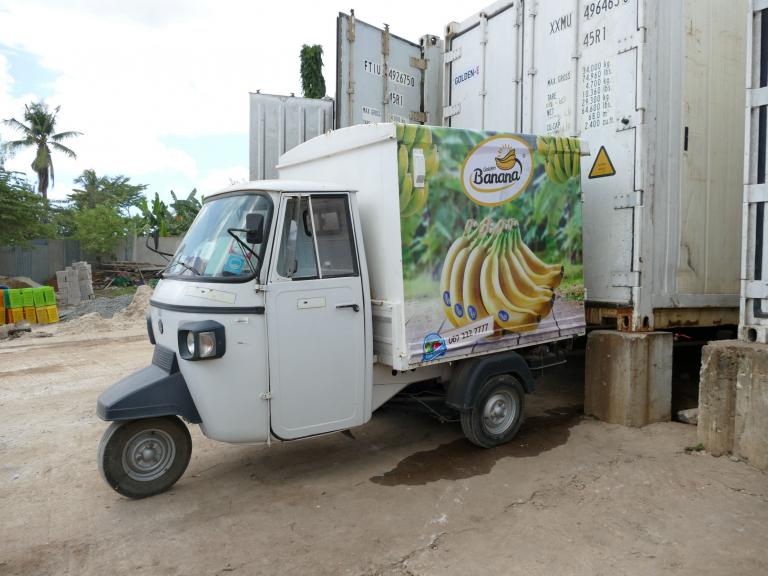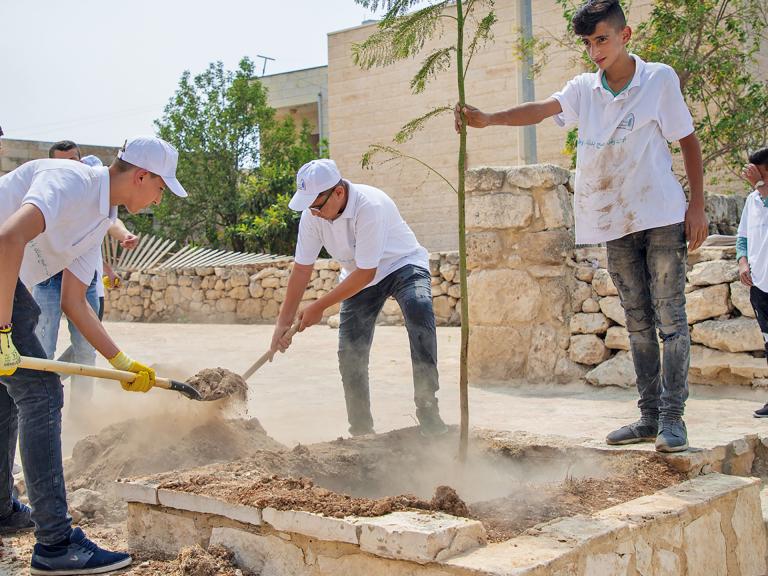-
Last updated on

The award ceremony in the Antwerp Provincial House on 25 October 2021. From left to right: laureate Dr. Veerle Sterken, chairman of the Plantin Fund Guy van Doosselaere and provincial governor Cathy Berx.
The Christoffel Plantin Prize has been awarded since 1967 by the fund of the same name. Some friends came up with the idea of awarding a prize to a Belgian who contributes to Belgium's prestige abroad and yet is hardly known to us. With this prize, they wanted to honour that person and give them recognition in their own country.
The prize – 25,000 euros and a medal – is awarded annually in alternating categories: social engagement (2018, 2021, etc.), culture (2019, 2022, etc.) and sciences (2017, 2020, etc.). Due to the coronavirus crisis, the 2020 prize was pushed back to this year. Candidates can only be nominated by Belgian embassies and consulates which call upon their worldwide network for this purpose.

Dr Veerle Sterken in front of a model of the ESA spacecraft Giotto in 2015.
Top people internationally
This year, Dr Veerle Sterken was the laureate. She is a space scientist at ETH Zurich, a prestigious Swiss research university. ‘Dr Sterken is among the top people internationally and built up an impressive career at a young age,” is how Guy van Doosselaere, chairman of the Plantin Fund, justifies the choice.
Nonetheless, she was born and raised in Merelbeke until she was 18 and she went to school in Ghent. ‘When I was 5 years old, I was able to watch Halley's Comet from New Zealand with my father, an astronomer,’ she says. ‘That's what gave me a fascination with astronomy and space travel.’ This was why she went to study aerospace engineering in the Netherlands when she was 18. After some wanderings, she ended up in Switzerland.
Today, she mainly specialises in ‘interplanetary and interstellar dust’. And that can be taken very literally. A special Stardust Mission brought some space dust to Earth, which allowed us to determine the exact composition of that dust.
This is extremely useful. When astronomers observe stars, the light they see is slightly distorted by that dust. If they know more about the dust, they can also assess what they are seeing more correctly. It is also interesting to know what is floating around in our solar system and beyond. Dust particles are information carriers for the environment in which they are ‘born and raised’.

This is what a lab simulation of space dust looks like.
Delighted
In any case, Sterken is delighted with her prize. ‘Building up a career in science is not easy,’ she says. ‘The Christoffel Plantin Prize could help with the next steps. Since I've been living abroad since I was 18, I have very few contacts in Belgium. That makes the prize an excellent opportunity to make my research a little better-known in Belgium. I can also use it to strengthen my old contacts in the Netherlands. Besides, it's great for putting ‘in-situ dust science’ in the spotlight. Even though it's enormously valuable and fascinating, it's a relatively unknown area of research, even among astronomers.’
Space dust research will, in any case, become more prominent. For example, an interstellar space mission could search for space dust outside our solar system in the future too, at least if NASA decides to carry out that mission.
Some past winners of the prize include opera director Gilbert Deflo (2019), ophthalmologist Piet Noë (2018), who set up an eye clinic in Rwanda, and microbiologist Hilde De Reuse (2017), affiliated with the Institut Pasteur in Paris.
Dr Sterken on her experiences with the Belgian embassy in Switzerland
‘Of course I know the embassy from extending passports and suchlike, but the most fun and playful bit is always the World Cup. This is when the embassy organises the legendary public viewing at the Waisenhausplatz with Belgian beer, Belgian fries and Andalouse sauce! That's blissful. Many Belgians and Swiss people I know come along, and it's an opportunity to get to know some new Belgians at the same time.’
More on People

Belgium working to eliminate violence against women
25 November is the International Day for the Elimination of Violence against Women. Combatting violence against women is an abso...

International Year puts fruit and vegetables in the spotlight
Fruit and vegetables should be on the menu more, says the UN in this International Year. In Tanzania, Rikolto is supporting an e...

Sustainable cities for a sustainable world
By 2050, 70% of the world's population will live in cities. That is why the Belgian development agency (Enabel) is working in it...
